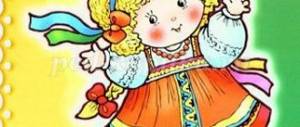Chronicle of my class
Stage I: Organizational.
What is a chronicle? To answer this question, let’s turn to the “Modern Explanatory Dictionary of the Russian Language”: “chronicle - in Ancient Russia - a weather record of historical events that took place in a country, city, locality. Any regular recording of events, diary, chronicle. A set, a collection of any records, works, photographs, films, etc., in which individual moments of the development and course of something are reflected.”
But when you say the word “chronicle” out loud, old notebooks with yellowed pages, someone’s destinies, events, tears and joy, worries and experiences come to mind. For some reason, a family photo album with cracked photographs, yellowed postcards, and even dried leaves comes to mind (there was probably a reason to save them...)
In my opinion, a chronicle is still a record of events, a kind of diary of the author, which helps to reconstruct the most significant events. Ancient chronicles were written on parchment and described events by year. And each story began with the words “in the summer... of the year” - hence the name of the word itself. Now everything is very simple. First the typewriter, and now the computer, came to the aid of man. In the information age, the means of transmission are also informational, i.e. Quite informative and concise.
“Class Chronicle” is a collection and “sorting” of events that took place in my class over 4 years.
Stage II: Techniques and methods of work.
For me, the “class chronicle” is a kind of meaningful material. When creating a “class chronicle,” I would like the teacher, my classmates, and parents to like the work. What can I bring to the chronicle being created?
Over the course of four school years, I have accumulated a lot of photographs that my classmates or teacher may not have. Remember and describe everything that happened to us from 1st to 4th grade. And the heroes of my chronicle will, of course, be my classmates - as the main participants and witnesses of all events. In my opinion, the most striking and memorable moments should be reflected in the chronicle.
Firstly, you need to say a few words in the chronicle about the creation of the class, how many students are in the class, how many girls, how many boys. Indicate common character traits or hobbies of the children, what they are interested in. Next, you can include materials from extracurricular activities (participation in competitions, quizzes, competitions), materials from holidays. You can talk about collective activities, what everyone did together. Where did you go (out into nature, on an excursion, etc.), what exhibitions did you visit?
It seems to me that the results achieved by the guys should also be noted. I would also like to place in the chronicle the most interesting creative tasks that the children completed during this year. I think that the chronicle of the entire class should talk about all members of the team.
Stage III: Presentation of the chronicle
I want to present my “class chronicle” in the form of a presentation in which I have placed various photographs that capture interesting moments from the life of our class.
Stage IV: Modeling
I will make my draft chronicle in the following sequence: at the very beginning I will place the “passport data” of the class, and then I will arrange the material by year of study. I'll add a song about school to the film.
“All-Russian School Chronicle” - a collective history of the class
“Cool Magazine” has already told readers about the “All-Russian School Chronicle” project, which was recently announced by the Living Classics Foundation and the RIPOL Classic publishing house. But recently, one of the creators of the project, the president of “Living Classics” Marina Smirnova visited the “Cool Childhood” program, which, with the support of “Cool Magazine,” is broadcast on MediaMetrix radio, and spoke in detail about the new project. The link to the program is at the end of the text, but here is a shortened version of her interview with the editor-in-chief of “Cool Magazine” Alexei Khodorych.
“It is very important for an adult to remember his childhood dreams”
— Marina, tell us about your new unique project.
— I think before calling a project unique, you need to explain what its value is. “The All-Russian School Chronicle” is an opportunity for every student to create their own book. We all write something at school: I remember how my classmates and I filled out forms. Every girl, and some boys too, had these green checkered notebooks with questions on the first page. The rest of the sheets were folded, and it was these that the respondent filled out so that others would not see what he wrote. The person who owned this questionnaire knew everyone's answers. That's why everyone kept notebooks where they asked what interested them.
Those who have these homemade questionnaires are very lucky: they are incredibly interesting to re-read, because there are so many facts there that you simply forget about. Revisiting mine, I learned that we were given red caviar in the school cafeteria. This really surprised me! In addition, at school we started special notebooks in which we took turns writing letters to each other. You write a letter, give the notebook to your friend, she writes an answer to you at home, brings it to school, and you answer her letter. And so on in a circle. We did this with great interest! Every day you write letters, that is, every day you have to extract some meaning: something interesting that someone else would want to know about. It was impossible to write two lines, something like “I’m doing well, I got an A today.” This is not a letter - the letter must be meaningful and at least a page long.
I remember that we ran home in order to quickly read the message addressed to you, answer it, and then sit down to our lessons. It was so great, probably because it was not directly related to studying. But it was here that we practiced the skills of formulating our thoughts, we tried to unearth something fascinating in ourselves in order to share it. We opened up in this epistolary game, became friends through this correspondence.
- But what is the “Class Book”?
— First of all, this is the collective history of the class. The guys are all different: some are more active, some less, but each of them has something to tell about themselves and how they see what is happening around them. There are children who write stories, poems, and are interested in literature. They should be the engines of this whole story. But the concept of the book needs to be developed by everyone together, get together, discuss and answer the question - what do we want? Do we want this to be a set of stories about school life, or do we want to write about each other, or maybe everyone wants something different?
The sections in the book can be anything. For example, the section “About us”, “Who we are”, “Funny school stories” or “Interviews”. Why don't we interview our classmates? You can create a press center in the classroom of journalists, whose task will be to take comments on everything that happens in the classroom. For example, “Today we wrote a test in chemistry, do you think you coped with it” or “Today we visited the theater, what do you remember most?” All this can then be included in this book. If someone in the class does not want to write, then there is no need to force him - let him tell, others can write down his words. And someone might be better off drawing their impressions of school or creating a comic book. The main thing is that all this will be incredibly interesting for these people to look at in ten, twenty, thirty years.
Recently, at a project presentation, teachers asked us: “Is it possible to make a school book right away? We will describe the school’s achievements there and illustrate them with diplomas.” On the one hand, of course, it is possible. On the other hand, will you definitely be interested in looking at the collection of diplomas in thirty years? Or would you be interested in reading some living history? Written in the language you spoke then, and remember how you thought then? After each class we get what? Photo album. And we remember every age. Here I am in fifth grade, here I am in sixth grade, this is what I was like. You look at the photo with tenderness and think: “Oh, did I really wear such jeans?”, “Oh, what a funny blouse I have,” “Why did I wear these braids?” And you remember this time with such warmth, but you don’t remember what you were like inside at that moment. Here you are in these pants and in this blouse, you dreamed of something, you wanted to become someone.
For example, from the questionnaire I found out that in the 5th grade I wanted to become a veterinarian, and this was funny for me, because I had already forgotten about it. I thought that I always wanted to become a teacher of Russian language and literature. I don’t remember these transformations, maybe I wanted to become someone else. It is very important for an adult to remember his childhood dreams in order to understand whether he is going the right way, whether he has lost himself. I asked many of my friends if they remembered who they wanted to be, and it turned out that they didn’t. Many people forget their childhood wishes. How then can you analyze your life if the initial stage is erased from your consciousness?
— How many of these books will each class publish after 11 years of study?
— We don’t set any limits. Of course, it is advisable to publish one book every year, because a year is a complete period with its own goals and results. At the same time, pushing a first-grader to write something when he has just learned to write is difficult. First-graders are more likely to draw. But they can fill out a simple questionnaire about themselves. That is, their booklet may consist of questionnaires and drawings, and you can also add an interview with their teacher.
— But first, you wanted to publish 3 books based on the results of 11 years of study?
- This is an artificial limitation. A tradition must be formed here. We want something to remain every year. Keeping a diary is very important because time passes, it seems to you that you are living a full, rich life every day, and ten years later you meet someone whom you have not seen for ten years, he asks: “How are you doing? What interesting happened during the time we didn’t see each other?” And you name some two or three events, and suddenly you realize that you cannot tell what happened in your life. It's horrible! Where did the time go? Here's the question. Recording your thoughts and impressions in a personal diary or creating collective books is just a way to save time, record, realize, stop and think about what you are spending precious moments on. Therefore, it is great if you have 11 books left after school, because this means that you will have a conscious memory of your childhood and your youth.
“Try to see something good in a person”
- But there are still very important advantages from this book. You get closer to your classmates, you get closer to your teachers.
— The student wants to appear better to the teacher than he really is. However, the problem is that children feel that adults evaluate them from one point of view, while adults judge them from a completely different point of view. Children often think that if they are obedient, study with straight A's, and diligently complete all assignments, then their teacher simply must like them, but the teacher may give preference to hooligans who are proactive and creative thinkers. Yes, they give them Cs and Ds, but they understand perfectly well that these children are very talented. That is, it is important to express yourself and always remain yourself. It doesn’t matter that you don’t think as quickly as everyone else, but you write poetry, and your strength is that you know how to concentrate on the current moment and formulate your thoughts.
- Just because you're slow to think, it doesn't mean you won't become anything.
- It doesn't mean anything at all. You need to see the talent in yourself, you need to somehow explain this talent to yourself. School grades and overall performance do not fully reflect a person. There are so many potential strengths and abilities hidden in a child that may not be revealed during lessons. That is why when preparing the “Class Book” there should be no flirting, the teacher should not demand that children appear to be excellent students, such standards - “We never skip classes” and so on. Because then the book will turn out gray and uninteresting. Let's write down the stories that really stick with us. Let's not declare false thanks to each other, let them be sincere, and then they will formulate themselves. I don’t encourage everyone to write only about mischief and disobedience, but nevertheless, even in such texts there can be more warmth and love than when you write: “I thank Anna Mikhailovna for being there for so many years...”. Just in the stories about Anna Mikhailovna that happened in class, there could be a lot more of this. Therefore, here you need to let yourself go and give yourself the opportunity to be real.
— “Class Book” is also a way to make friends?
— Guys came up to me and asked what to do if there are children in the class with whom we are not friends. What to do with the losers in this story? I answer them: “Look, there is a family, for example, there are brothers and sisters in it, what kind of relationship did they have in childhood? Many bite, fight, share rooms, toys, and swear. This happens very often, but this does not mean that they do not love each other. In fact, then after a while it turns out that these are the closest people who are endlessly dear to each other and will do anything for each other. It might be worth taking a closer look at those with whom you are not currently communicating. Most likely, this will not always be the case.”
Just imagine that you spent 11 years of your life on the people you studied with, and then simply threw them out of your life. It's so stupid to throw people around. It’s better to leave everyone around you, try to find something valuable in everyone, from the height of my age I can say for sure that there is something beautiful and interesting in everyone. Try to treat any of your classmates well, maybe he will open up to you from a different, unfamiliar side. There is some Vasya Ivanov, we as a whole class don’t like him, and we want to write in the book that Vasya Ivanov is really ugly, and his shoes are full of holes, and his freckles are in the wrong place. So you should always ask yourself a question: 30 years later, will you want to read what you wrote about Vasya Ivanov like that? Or do you want to be generous? You really need to look at your texts from the perspective of time. How would you like to see yourself? Do you want to understand that you were angry, vindictive and petty? I think you'll feel bad for yourself.
“Children, it turns out, even in their youth understand this wise principle: “Everyone has their own reasons.” Maybe this Vasya seems so nasty, but when you get to know him better, you will understand something completely different about him.
- Yes, this happens very often. A defensive reaction or some kind of trauma, or something else. But the fact is that it is the injury or precisely this, for which they do not like him, that can become a catalyst, give an impetus to creativity, for example. In many memoirs, biographies of famous people and geniuses, one can find descriptions of their unhappy childhood: many were outcasts, their peers did not understand them, they were bullied. And they overcame it and became great people.
“Our printing house undertakes to publish three copies of such a book free of charge”
— How to become a participant in this program? And what does it mean that the publishing house “RIPOL Classic” and “Living Classics” are supervising the project? Do you have any recommendations? Perhaps there is some kind of database or program? How does this all happen?
— There is a website school-letopis.ru, but you can just type “All-Russian School Chronicle” in Yandex and find it. There is an application form there. You submit an application, so we know that you want to participate in our project. Next, the person who will act as your supervisor will contact you. He can explain something to you. But this is not so important, because you can start working on your own. You need to decide on a theme, come up with a cover, come up with a title, and collect text. Texts must be at least 120 pages in A4 format, written in 14-point intervals with 1.5 digits. This is the minimum volume from which it is possible to make a thin hardcover book. It can be made thicker, that is, the volume can be basically anything.
After this, work with the publishing house begins. The publishing house does pre-press preparation: editing, proofreading, preparing the original layout for printing, in fact, this is something that is still difficult to do at school. Together, the guys have an alternative: they can act as editors themselves, using the electronic platform of the virtual publishing house Bookscriptor. Further, our printing house undertakes to publish three copies of this book free of charge. One copy for the school library, one copy for the Russian State Children's Library, where this book will be kept forever and anyone can read it, and one for the Book Chamber. You can order this book separately for yourself.
The price will depend on whether you do the editing yourself, that is, using our program, then the book will be very inexpensive, or you turn to an editor for help. Do you need a second proofread? We can say for sure that the book will cost no more than a school textbook.
“We will pay attention to children who write well and pay attention to them in the future.”
— What will happen next with these “Class Books”, besides the fact that they will end up in the school library, the Russian State Children's Library, the Book Chamber and in the hands of the authors?
“We will try to make a chronicle, collect books from all schools, and then publish a publication - a portrait of a modern schoolchild. And we plan to release these every year. To do this, we will hold a competition for the best works. As a result, we will put together a book of the best essays, stories, poems, which will contain work from first-graders, sixth-graders, and so on. This book will be published in large quantities, that is, it can be bought in bookstores. If there are really very talented works, intelligent, extraordinary, then it seems to me that for their authors “The All-Russian School Chronicle” will be a chance to express themselves. We will pay attention to children who write well and help them develop literary talents.
— So this is also a selection of literary pearls throughout Russia?
— Yes, and this is also an opportunity to create a huge number of publishing houses. We, in fact, will show how to organize a publishing business in general. That is, each class turns into a mini-publishing house. By the 11th grade, when a tradition has developed, every child will have learned to typeset and edit, and will know what a second proofread is, that is, the entire publishing process will become transparent and understandable. We are confident that after some time, every student, upon graduating from school, will be able to independently open their own publishing house. In fact, there are more publishing houses in European countries than here. And we hope to fill this gap through this project.
— Will the publishing houses be electronic? Or are you hoping to extend the life of paper books for many more years?
- There are a lot of options here. Someone will want to create an electronic publishing house, understanding how this is done, someone will record audio books, someone will make gift editions, someone will release paper versions. Besides this, there is another positive point. People who publish books always read a lot. I think that thanks to the All-Russian School Chronicle, it will be possible to simultaneously create a new generation of publishers and readers.
— How many books have you already published?
— At the moment there are 14 books, 10 of which are for schools in St. Petersburg and Moscow. This was the first test, testing all processes to see how our idea works in reality. And four more books were published in Artek, where active work on book creation is now underway. I myself participated in the creation of such a book, I hope that it will be published soon. Let me tell you that working on a book is an incredibly exciting process that literally sucks you in. First you think about how they will write, and then you start reading. As soon as you start reading these works, you start discussing them with the guys.
At first, no one wanted to write, questions poured in: “What is this, what book?” Then we asked the guys to fill out a questionnaire. But what should you write about yourself? Am I a good boy, do I get straight A's? Therefore, they suggested writing about your neighbor as you see him, and then they began to read aloud, without saying who it was written about, and everyone had to guess. The guys listened with bated breath, because suddenly it was about him. You try it on yourself, and then suddenly you hear the text, it seems to you that this is not about you, but everyone recognizes you. And then an internal desire arises to challenge such a vision of you, to write about yourself in your own way, to explain yourself. And then you want to write about a friend, tell a funny incident, share an observation...
Everyone needs to work on the book together. It shouldn’t be that you write a text at home, bring it to the teacher, he evaluates it, edits it and you’re done. You should definitely read it together, you should definitely discuss it, ask riddles. In fact, this is a very funny story when you sat in a circle, wrote about each other, and then came to a birthday or holiday, you start reading and guessing who wrote about whom. Firstly, who wrote it, and secondly, about whom it was written. This is such a very interesting topic for discussion, because then we begin to discuss with each other what we are like and how they see us.
— What book format would you recommend starting with?
— It seems to me that if you are doing this for the first time, it is important to immerse yourself, try to write about yourself, about your classmates, about what unites you. You can write about yourself in different ways - who you are, what you dream about, who you want to become. Or you can tell which literary hero you associate yourself with, what kind of heroes there are in your life, or write about your friends. The topic is set by the mentor, but it is important to find different angles of yourself, to look at your personality from different angles. There are so many different ideas you can come up with that will be of interest to the whole class: write a letter to your thirty-year-old self, tell your family history, share your favorite place in the city, or imagine that you live on Mars. There is another version of the book. You can try to write real stories. That is, first, together you come up with each of your own characters, then you come up with a plot, secondary characters - this is how your fictional stories come out. But it seems to me that it is better to start with your class, with what unites you and what you are like. Because it will be easier, and then gradually you will reach some other literary forms.
— Is your project supported by the Ministry of Education and Science of the Russian Federation?
— The Ministry of Education and Science of the Russian Federation officially announced their support for the “All-Russian School Chronicle” and posted information about it on the website.
— Imagine that you are now addressing parents and children. To summarize your story, what else would you like to highlight?
“It seems to me that it is important at some point to stop and think about what kind of person you are, because all our lives we have been running, in a hurry, taking some exams. There are not many ways to pause the race of life: sometimes it's a conversation with friends, sometimes with parents. But the best way to understand yourself and your thoughts is to write down your thoughts, describe what is happening to you. Because at this moment we think about who we are, what is important to us, but in fact the answer to all these questions, or the opportunity to ask ourselves this question, is the most important thing that ultimately makes us individuals. Therefore, I suggest you take part in the All-Russian School Chronicle project or start keeping a diary. It’s just important to learn how to preserve yourself, formulate your own thoughts, reflect - this is exactly what the creation of a written text teaches.
Preparing to defend your research work
1. Title: “The coolest class” (chronicle of our class)
2. Why did I start working on the research paper? (problem)
Is it possible to create a film about the life of our class yourself? I decided to try it.
3. Why did I work on the research? (target)
Carefully preserving memorable events in a creative form - film.
4. How I worked on researching and making the film:
- I found out from dictionaries and reference books the meaning of the words “chronicle”, “chronicler”.
- I studied the history of the appearance of the first chronicles.
- I collected photographic documents and information to create a film.
- She involved classmates and parents in collecting materials.
- Systematized the collected material.
- Conducted a survey among classmates:
- When was our class born?
- Is there any talent in our class?
- Do children participate in competitions and olympiads?
- Our favorite activities?
- Do interesting events happen in our class and how often?
- Does our class have its own traditions?
- I studied the technology of creating presentations in PowerPoint.
- I made a presentation in PowerPoint and added music.
- I transferred the presentation to the QuickTime Player program.
Chronicle 2 "A" class 2011-2012. Good afternoon, Happy hour, Let's begin our story. - presentation
Chronicle 2 "A" class
Good afternoon, Happy hour, Let's begin our story.
Second grader, second grader, This is not the first year of school. And our very friendly people are proud of this.
Our song We are inseparable friends since childhood. We teach, walk, and sing together. Our native school is proud of us - You won’t find friendlier kids here! Chorus: Because - because we are pilots. Our school is our home. We will go on scientific flights. We always stand up for each other. We teach economics at school: We know business, advertising, goods. Friendship helps us study at four and even five. So that we don’t encounter problems and don’t become bankrupt in life. We decided to remain friends. It’s easier to catch luck with friendship.
Commandments of our class 1. Our class is the best. Try to love him. A class is good if each of us feels good in it. 2. There are many of us and we are all different - take this into account, try to behave in such a way that the people around you feel good. Treat everyone the way you would like to be treated. 3. School life is complex and diverse; There is a lot of joy in it, but there is also sadness. Learn to endure troubles with courage. Don’t take your failures out on your comrades and teachers, then the bad things will soon pass. 4. If you happen to make a mistake or stumble, don’t get out of it, don’t lie. Be honest, first of all, to yourself. 5. Protect the weak, come to the aid of your comrades, without waiting to be asked. In general, strive to live with benefit for people and for yourself. 6. Whether you want it or not, you need knowledge. Don’t humiliate yourself with idleness, don’t be lazy, lazy people have a bad time in life. 7. Cherish your school partnership: it is for life. Don't forget and don't betray your school friends. Try to leave a good memory of yourself at school.
I, you, he, she are a great family together. And we are called that for a reason: There are 25 “I” in the word “we”! -11 boys -14 girls
. Our Maxim is handsome and cheerful, Nikita is a famous football player. Sasha is an artist, Antosha is an artist, Alina and Alena are undoubtedly talented. Olesya is a kind soul - pleasant and good to everyone. Veronica loves work and is a faithful friend to everyone in the class. Danya and Tolya are the girls' favorites. They won't hurt or beat you. And Igor is simply class! He will give away all the last. The second grade is smart and friendly, Doesn’t know what laziness is, And if we need anything, So it’s the eighth day of the week. There are many classes in our school, only our best! We guys are just great! We guys are just awesome! Ksyushenka sings and dances, Katya loves to dance. Anya Potter is being read. Zhenya doesn't mind going for a walk. Polya is so strict, Sonya will be a teacher, She will teach all the boys in our class a lesson. There is simply no better Acrobatic in our school than Sasha! Sasha and Igorochki send you their greetings. Arsya knows everything in the world, He will issue any certificate, Andryusha is the best mathematician. Vova is a champion of tongue twisters.
Well, after school we also know what to do with ourselves! music school local history dance drawing Sports section
Birds are cold in winter. You and I will feed the birds!
We love the pool very much, we all love to swim. Come, we invite everyone - Let's swim together.
And this is how we relax - we celebrate holidays, visit exhibitions, theaters, museums!
Unforgettable meetings
Week of Good Deeds
We come up with projects
We love excursions





